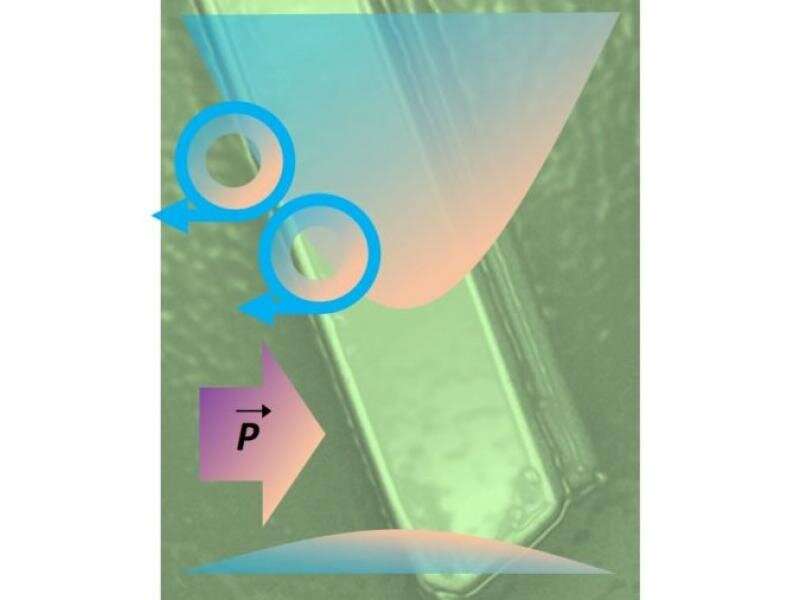Unique material could unlock new functionality in semiconductors

If new and promising semiconductor materials are to make it into our phones, computers, and other increasingly capable electronics, researchers must obtain greater control over how those materials function.
In an article published today in Science Advances, Rensselaer Polytechnic Institute researchers detailed how they designed and synthesized a unique material with controllable capabilities that make it very promising for future electronics.
The researchers synthesized the material—an organic-inorganic hybrid crystal made up of carbon, iodine, and lead—and then demonstrated that it was capable of two material properties previously unseen in a single material. It exhibited spontaneous electric polarization that can be reversed when exposed to an electric field, a property known as ferroelectricity. It simultaneously displayed a type of asymmetry known as chirality—a property that makes two distinct objects, like right and left hands, mirror images of one another but not able to be superimposed.
According to Jian Shi, an associate professor of materials science and engineering at Rensselaer, this unique combination of ferroelectricity and chirality is advantageous. When combined with the material's conductivity, both of these characteristics can enable other electrical, magnetic, or optical properties.
"What we have done here is equip a ferroelectric material with extra functionality, allowing it to be manipulated in previously impossible ways," Shi said.
The experimental discovery of this material was inspired by theoretical predictions by Ravishankar Sundararaman, an assistant professor of materials science and engineering at Rensselaer. A ferroelectric material with chirality, Sundararaman said, can be manipulated to respond differently to left- and right-handed light so that it produces specific electric and magnetic properties. This type of light-matter interaction is particularly promising for future communication and computing technologies.
More information: "A chiral switchable photovoltaic ferroelectric 1D perovskite" Science Advances (2020). DOI: 10.1126/sciadv.aay4213 , advances.sciencemag.org/content/6/9/eaay4213
Journal information: Science Advances
Provided by Rensselaer Polytechnic Institute




















